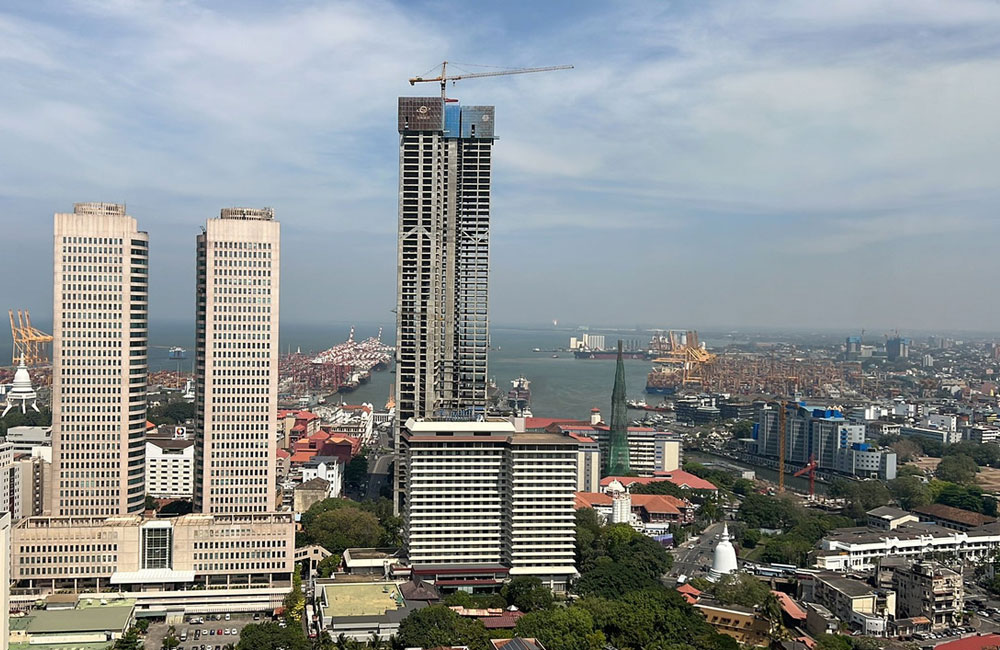Sri Lanka’s long-delayed Krrish Tranceworks Tower project once touted as a billion-dollar symbol of Colombo’s post-war revival has again come under scrutiny, following revelations by India’s Enforcement Directorate (ED) that the project was partly financed with ₹205 crore diverted from Indian homebuyers’ funds by Gurugram-based developer Krrish Realtech Pvt Ltd.
The luxury real-estate and hotel complex, located at Transworks House, a colonial-era heritage building in central Colombo, was launched in 2012 with promises of a five-star hotel, premium residences, and an international business hub. More than a decade later, the sprawling site remains largely idle, ringed by hoardings and skeletal structures, symbolizing years of stalled progress, regulatory uncertainty, and now, international financial controversy.
The ED’s investigation in India alleges that Krrish Realtech, led by promoter Amit Katyal, collected over ₹500 crore from 400 homebuyers in Gurugram for projects that never materialized. Of this, about ₹205 crore was allegedly siphoned off through shell companies to finance the Colombo venture under
The One Transworks Square Pvt Ltd, which holds the lease for the Sri Lankan project. Indian investigators claim the money was layered through intermediaries and disguised as overseas investment, forming part of a larger money-laundering network.
Following the probe, the ED in January 2025 provisionally attached properties worth more than ₹200 crore, including about four acres of prime Colombo land tied to the Krrish project. The assets, held under the Sri Lankan subsidiary, are now subject to legal proceedings under India’s Prevention of Money Laundering Act (PMLA).
The ED’s chargesheet names Krrish Realtech directors and associates, some of whom are also linked to offshore entities and dual citizenships, including St. Kitts and Nevis.
In Colombo, government officials say the project has effectively been frozen pending legal clarity. The Urban Development Authority (UDA), which leased the Transworks land, has been reviewing compliance conditions after repeated delays and unpaid dues.
Industry insiders note that while initial groundworks and design approvals were completed years ago, no substantial construction has resumed since 2018, and the site remains guarded but inactive.
For Sri Lanka, the development is both an embarrassment and a cautionary tale. The project was once marketed as a landmark foreign investment expected to attract over USD 650 million, create thousands of jobs, and enhance Colombo’s skyline. Instead, it has become a high-profile example of how opaque cross-border real-estate financing can entangle two jurisdictions in legal disputes.
Legal experts warn that the ongoing ED case in India could further delay any revival, as asset seizures and ownership claims will require bilateral coordination. Until then, the iconic Transworks site intended as a symbol of progress stands as a stark reminder of ambition undone by financial misconduct

Leave your comments
Login to post a comment
Post comment as a guest